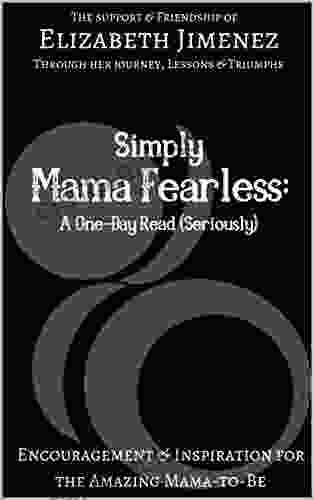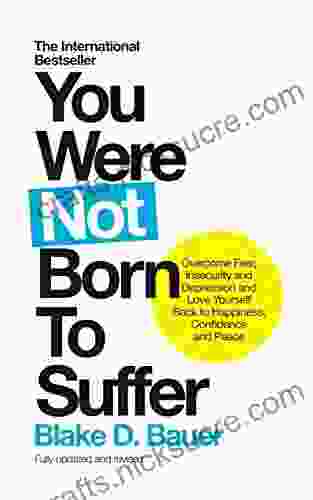Cosmology and Culture at the Twilight of the Big Bang: Unraveling the Mysteries of the Universe and Our Place Within It


As we stand at the threshold of the 21st century, we find ourselves amidst an unprecedented era of scientific discovery and technological advancement. Among the most profound and transformative of these advancements is the field of cosmology, the study of the origin and evolution of the universe. In recent decades, cosmological research has unveiled a wealth of knowledge about our cosmic origins and our place within the vast tapestry of existence.
This article explores the profound interconnections between cosmology and culture, highlighting how cosmological insights have shaped our understanding of ourselves and the world around us. From ancient myths and religious beliefs to modern scientific theories, cosmology has played a pivotal role in shaping human thought and culture.
4.2 out of 5
| Language | : | English |
| File size | : | 12443 KB |
| Text-to-Speech | : | Enabled |
| Screen Reader | : | Supported |
| Enhanced typesetting | : | Enabled |
| Word Wise | : | Enabled |
| Print length | : | 434 pages |
Through an examination of historical and contemporary perspectives, we will delve into the ways in which cosmology has:
* Influenced our understanding of time, space, and the nature of reality * Shaped our cultural narratives and artistic expressions * Provided a lens through which we contemplate our place in the cosmos and our potential destiny
Cosmology's Influence on Human Thought and Culture
Since the dawn of human consciousness, we have gazed up at the night sky and pondered our place within the vast expanse that surrounds us. The celestial tapestry above has captivated our imaginations, inspiring awe, wonder, and a deep-seated desire to understand our cosmic origins.
In ancient cultures, cosmology was deeply intertwined with mythology and religion. Celestial bodies were often associated with deities, and the movements of the stars and planets were believed to hold sway over human affairs. From the Babylonian astrologers who mapped the heavens to the Chinese astronomers who recorded comets and eclipses, ancient civilizations sought to make sense of the cosmos and its perceived influence on our lives.
As scientific inquiry advanced, cosmology gradually separated from mythology and religion. In the 16th century, Nicolaus Copernicus proposed a heliocentric model of the solar system, placing the Sun, not the Earth, at the center of our planetary system. This revolutionary idea challenged the prevailing geocentric model and opened the door to a new understanding of our place in the universe.
The 20th century witnessed a series of groundbreaking discoveries that transformed our understanding of the cosmos. In 1915, Albert Einstein published his theory of general relativity, which revolutionized our understanding of gravity and the nature of space-time. In 1927, Georges Lemaître proposed the "Big Bang" theory, suggesting that the universe had a finite beginning in a single, infinitesimally small point.
These discoveries challenged long-held beliefs and opened up new avenues of cosmological exploration. The Big Bang theory, in particular, has had a profound impact on our cultural consciousness. It has led us to question the nature of time, space, and the origin of matter and energy.
Cosmology and the Interplay of Science and Art
Throughout history, cosmology has provided a rich source of inspiration for artists, writers, and musicians. The vastness and mystery of the cosmos have captured the imaginations of countless creative minds, leading to the creation of iconic works of art that reflect our profound fascination with the nature of existence.
From the celestial landscapes of Vincent van Gogh's "Starry Night" to the abstract cosmic compositions of Wassily Kandinsky, artists have sought to translate the grandeur of the universe into visual form. In their pursuit of cosmic inspiration, these artists often draw upon the latest scientific discoveries, blurring the boundaries between science and art.
Literature and music have also been deeply influenced by cosmological themes. Science fiction writers such as Arthur C. Clarke, Ursula K. Le Guin, and Kim Stanley Robinson have explored the implications of cosmological discoveries on human society and our potential destiny. Composers such as Gustav Holst, Karlheinz Stockhausen, and John Cage have incorporated celestial themes into their musical compositions, creating sonic landscapes that evoke the vastness and wonder of the cosmos.
Cosmology and the Search for Meaning
One of the most profound ways in which cosmology has influenced human thought and culture is through its impact on our search for meaning. The vastness and complexity of the universe can lead us to question our own significance and purpose in the grand scheme of things. Yet, it can also inspire a sense of awe and wonder that transcends our individual existence.
For some, the vastness of the cosmos can be a source of existential angst. The realization that we are but a tiny speck in an infinite universe can lead to feelings of insignificance and cosmic loneliness. However, for others, the vastness of the cosmos can be a source of profound inspiration. It can lead us to appreciate the beauty and fragility of our planet and to recognize the interconnectedness of all living things.
Cosmological insights have also challenged our traditional notions of time and space. The Big Bang theory suggests that time and space had a beginning, and that they are intimately intertwined. This has led to a new understanding of the nature of reality and our place within it.
Moreover, cosmological discoveries have raised profound questions about our potential destiny. If the universe is constantly expanding and cooling, will it eventually reach a state of heat death, where all stars have burned out and the universe is devoid of life? Or will it continue to expand forever, endlessly creating new stars and galaxies? These are just some of the questions that cosmology has raised, and they continue to fuel our search for meaning and purpose in the cosmos.
Cosmology, the study of the origin and evolution of the universe, is a field of scientific inquiry that has profoundly shaped human thought and culture. From ancient myths and religious beliefs to modern scientific theories, cosmology has provided us with a lens through which we contemplate our place in the cosmos and our potential destiny.
Through its influence on our understanding of time, space, and the nature of reality, cosmology has challenged long-held beliefs and opened up new avenues of exploration. It has inspired countless works of art, literature, and music, and it has raised profound questions about our place in the universe and our search for meaning.
As we continue to explore the vast expanse of the cosmos, we can expect cosmology to continue to shape our cultural narratives and provide us with new insights into the nature of existence. It is a field of study that is both intellectually stimulating and deeply humbling, reminding us of our smallness in the face of the vastness of the universe, yet also of our potential to understand and appreciate the wonders that surround us.
4.2 out of 5
| Language | : | English |
| File size | : | 12443 KB |
| Text-to-Speech | : | Enabled |
| Screen Reader | : | Supported |
| Enhanced typesetting | : | Enabled |
| Word Wise | : | Enabled |
| Print length | : | 434 pages |
Do you want to contribute by writing guest posts on this blog?
Please contact us and send us a resume of previous articles that you have written.
 Fiction
Fiction Non Fiction
Non Fiction Romance
Romance Mystery
Mystery Thriller
Thriller SciFi
SciFi Fantasy
Fantasy Horror
Horror Biography
Biography Selfhelp
Selfhelp Business
Business History
History Classics
Classics Poetry
Poetry Childrens
Childrens Young Adult
Young Adult Educational
Educational Cooking
Cooking Travel
Travel Lifestyle
Lifestyle Spirituality
Spirituality Health
Health Fitness
Fitness Technology
Technology Science
Science Arts
Arts Crafts
Crafts DIY
DIY Gardening
Gardening Petcare
Petcare Jennifer Shannon
Jennifer Shannon Garrett Mcnamara
Garrett Mcnamara Abby Mcallister
Abby Mcallister William Deresiewicz
William Deresiewicz Irakli Makharadze
Irakli Makharadze Sissy Goff
Sissy Goff Abby Hafer
Abby Hafer Scott Carney
Scott Carney Carolyn Jessop
Carolyn Jessop Adam Freeman
Adam Freeman Sharon Boyd
Sharon Boyd Charlie Barker
Charlie Barker Adam Koch
Adam Koch Betsy Miller
Betsy Miller Jennifer L Hunt
Jennifer L Hunt Kristin Berry
Kristin Berry Tali Edut
Tali Edut Adam D Scott
Adam D Scott Andy Dumas
Andy Dumas Adam Galinsky
Adam Galinsky Jimmy Houston
Jimmy Houston John Hancock
John Hancock Mark Strom
Mark Strom Steve Mcmenamin
Steve Mcmenamin Achim K Krull
Achim K Krull Catherine Ryan Hyde
Catherine Ryan Hyde Zoe Hamlet Silva
Zoe Hamlet Silva Barry Robinson
Barry Robinson David Warriner
David Warriner Charles C Patrick
Charles C Patrick Deborah Madison
Deborah Madison Mark Januszewski
Mark Januszewski Norton Juster
Norton Juster Richard Lighthouse
Richard Lighthouse Peter Sagal
Peter Sagal Ryan Smithson
Ryan Smithson Kayla Cottingham
Kayla Cottingham Randi Hutter Epstein
Randi Hutter Epstein Robert Allans
Robert Allans Brandon Neice
Brandon Neice Aliza Green
Aliza Green Rex Ogle
Rex Ogle John Kean
John Kean Peter Harrison
Peter Harrison Arthur Turrell
Arthur Turrell Adam Lazarus
Adam Lazarus Steve Roper
Steve Roper Lucio Russo
Lucio Russo Gerald A Voorhees
Gerald A Voorhees P S Page
P S Page George J Hademenos
George J Hademenos Shannon Hale
Shannon Hale Kemi Iwalesin
Kemi Iwalesin Al Desetta
Al Desetta Emily J Taylor
Emily J Taylor Sean Lewis
Sean Lewis Aaron Reed Msn Crna
Aaron Reed Msn Crna Adam Frank
Adam Frank Deborah Beck Busis
Deborah Beck Busis Abinash Das
Abinash Das Helen C Rountree
Helen C Rountree Gisle Solhaug
Gisle Solhaug Ian Davis
Ian Davis Alexander Nehamas
Alexander Nehamas Chaz Scoggins
Chaz Scoggins Leigh Bardugo
Leigh Bardugo Jacob Neumann
Jacob Neumann James Heberd
James Heberd Ralph Villiger
Ralph Villiger Abbi Glines
Abbi Glines Emma Crewe
Emma Crewe David Simon
David Simon Paul Mclerran
Paul Mclerran Ilsa J Bick
Ilsa J Bick Douglas W Hubbard
Douglas W Hubbard Ed Engle
Ed Engle Sheila Lamb
Sheila Lamb Barry Dainton
Barry Dainton Abigail Alling
Abigail Alling Erik Scott De Bie
Erik Scott De Bie Barbara Natterson Horowitz
Barbara Natterson Horowitz Glen Finland
Glen Finland Sarah Luddington
Sarah Luddington Richelle Mead
Richelle Mead Joe Simpson
Joe Simpson Collins Kids
Collins Kids Rolf Mowatt Larssen
Rolf Mowatt Larssen T L Lowery
T L Lowery Casey Robson
Casey Robson G Bailey
G Bailey Fred Fields
Fred Fields Aaron Blight
Aaron Blight Lisa Robertson
Lisa Robertson Abdelkader Nouiri
Abdelkader Nouiri Al Barkow
Al Barkow Sam J Miller
Sam J Miller Michael Baigent
Michael Baigent Richard Martin
Richard Martin Paul Chiasson
Paul Chiasson Eduardo Duran
Eduardo Duran Adam Boduch
Adam Boduch Jane Gross
Jane Gross Irene Lewis Mccormick
Irene Lewis Mccormick Scott Meyers
Scott Meyers Aaron Hahn
Aaron Hahn Elena Aguilar
Elena Aguilar Daphne Poltz
Daphne Poltz Terry Palechuk
Terry Palechuk Lillian Cumic
Lillian Cumic Abigail Melton
Abigail Melton Dan Shideler
Dan Shideler Jeremy Shinewald
Jeremy Shinewald Michelle Hodkin
Michelle Hodkin Adam J Rosh
Adam J Rosh Claire Ahn
Claire Ahn Jeff Bauman
Jeff Bauman Sherri Granato
Sherri Granato Corinne Andrews
Corinne Andrews Christopher Black
Christopher Black Justin Driver
Justin Driver Stephen R Lawhead
Stephen R Lawhead Arthur Atchabahian
Arthur Atchabahian Randall Hyde
Randall Hyde Charles Fernyhough
Charles Fernyhough Laura Gao
Laura Gao Lin Wellford
Lin Wellford Sorin Dumitrascu
Sorin Dumitrascu Claire Santry
Claire Santry Walter Browder
Walter Browder O Thomas Gift
O Thomas Gift Dan Morris
Dan Morris Lois G Schwoerer
Lois G Schwoerer Peter David
Peter David Daniel Carter Beard
Daniel Carter Beard James Surowiecki
James Surowiecki R L Stine
R L Stine Louise Pickford
Louise Pickford Suzanne Corkin
Suzanne Corkin Chiara Giuliani
Chiara Giuliani Jack Cavanaugh
Jack Cavanaugh Laura Ray
Laura Ray Rose Ann Hudson
Rose Ann Hudson David Rensin
David Rensin John D Gordon
John D Gordon Bill Loguidice
Bill Loguidice Aaron Mccargo
Aaron Mccargo Michelle Obama
Michelle Obama Tony Soper
Tony Soper Annie Nicholas
Annie Nicholas Allan Sand
Allan Sand Martha C Nussbaum
Martha C Nussbaum An American Citizen
An American Citizen Bathroom Readers Institute
Bathroom Readers Institute Adam Chandler
Adam Chandler Chella Quint
Chella Quint Stephanie Puglisi
Stephanie Puglisi Nancy Mohrbacher
Nancy Mohrbacher Kim Gosselin
Kim Gosselin William Hamilton Gibson
William Hamilton Gibson Sarah K L Wilson
Sarah K L Wilson Aaron James
Aaron James Carmen Moreno
Carmen Moreno Adam H Balen
Adam H Balen Cosmas Inyang
Cosmas Inyang George John Romanes
George John Romanes Tomos Forrest
Tomos Forrest Brian L Gorman
Brian L Gorman Abigail Hing Wen
Abigail Hing Wen Lisa M Schab
Lisa M Schab Aaron Mahnke
Aaron Mahnke Linford Stutzman
Linford Stutzman Joy Neighbors
Joy Neighbors Agustin Fuentes
Agustin Fuentes Alifya And Umesh Mohite
Alifya And Umesh Mohite Tamora Pierce
Tamora Pierce Aaron Graves
Aaron Graves Adam Enaz
Adam Enaz Ann Mariah Cook
Ann Mariah Cook Rachel Caine
Rachel Caine Lisa M Given
Lisa M Given Robert Reid
Robert Reid Jay Ruud
Jay Ruud Achille Rubini
Achille Rubini Barbara Decker
Barbara Decker Gayle Forman
Gayle Forman Stephen Abbott
Stephen Abbott Paul Schneider
Paul Schneider Christopher Knight
Christopher Knight Richard Sattora
Richard Sattora Moon Ho Jung
Moon Ho Jung Programming Languages Academy
Programming Languages Academy Amby Burfoot
Amby Burfoot Vikas Kakwani
Vikas Kakwani Horace Kephart
Horace Kephart Devika Primic
Devika Primic Christina Hoff Sommers
Christina Hoff Sommers Todd Graves
Todd Graves Mary Roach
Mary Roach Jennifer Ackerman
Jennifer Ackerman Lucy Letcher
Lucy Letcher Debbie Ford
Debbie Ford Shuai Huang
Shuai Huang Darrin Bergman
Darrin Bergman Bobby Reyes
Bobby Reyes Edward J Larson
Edward J Larson Mary Wong
Mary Wong Iain Highfield
Iain Highfield Laura Peyton Roberts
Laura Peyton Roberts Og Mandino
Og Mandino Abigail Owen
Abigail Owen Alicia Silverstone
Alicia Silverstone Aaron Oster
Aaron Oster Eze Ugbor
Eze Ugbor Al Yellon
Al Yellon Ben Cohen
Ben Cohen Eugene H Merrill
Eugene H Merrill Carley Roney
Carley Roney Stefan Ball
Stefan Ball Andrew Skurka
Andrew Skurka Laurence Steinberg
Laurence Steinberg Pamela Druckerman
Pamela Druckerman Sarah Moore
Sarah Moore Matt Owens
Matt Owens Sheri Van Dijk
Sheri Van Dijk Michael Gruenbaum
Michael Gruenbaum Fumio Sasaki
Fumio Sasaki Katrina Kahler
Katrina Kahler Amber Fox
Amber Fox Adam Benshea
Adam Benshea Ken Springer
Ken Springer Lisa Latimer
Lisa Latimer Scott Shaw
Scott Shaw Shari Eskenas
Shari Eskenas Erika Fatland
Erika Fatland Robert Fritz
Robert Fritz Larry Carpenter
Larry Carpenter Brigitte Jordan
Brigitte Jordan Ariana Eagleton
Ariana Eagleton Aaron Lee Johnson
Aaron Lee Johnson M J Parisian
M J Parisian Kit Bauman
Kit Bauman Lisa Pineda
Lisa Pineda Benjamin Roberts
Benjamin Roberts Blake D Bauer
Blake D Bauer Abridged Ed Edition Kindle Edition
Abridged Ed Edition Kindle Edition Laurie Chaikind Mcnulty Lcsw C
Laurie Chaikind Mcnulty Lcsw C Chris Jericho
Chris Jericho Dr Robert Pasahow
Dr Robert Pasahow Stephen A Mitchell
Stephen A Mitchell Israel Finkelstein
Israel Finkelstein Nick Holt
Nick Holt Natasha Preston
Natasha Preston Garo Yepremian
Garo Yepremian Bruce Van Brunt
Bruce Van Brunt Lynn Alley
Lynn Alley Colin Hunter
Colin Hunter Ada Calhoun
Ada Calhoun John Taylor
John Taylor Marc Dando
Marc Dando Felice Fox
Felice Fox Andrew Campanella
Andrew Campanella Ian Mcleod
Ian Mcleod Ned Johnson
Ned Johnson Lindsey Ellison
Lindsey Ellison Jeremy Miles
Jeremy Miles Pat Chargot
Pat Chargot Charles Thomas Jr
Charles Thomas Jr Christian Beamish
Christian Beamish Jason Korol
Jason Korol Susan Zeppieri
Susan Zeppieri Stuart Firestein
Stuart Firestein Abraham Silberschatz
Abraham Silberschatz Ronald Kaine
Ronald Kaine Sam Jarman
Sam Jarman Al Baird
Al Baird Jenny Han
Jenny Han Vivienne Sanders
Vivienne Sanders J Robert King
J Robert King Judi Kesselman Turkel
Judi Kesselman Turkel Rob Gray
Rob Gray Steven Alan Childress
Steven Alan Childress Thubten Yeshe
Thubten Yeshe Jim Morekis
Jim Morekis Megan Lane
Megan Lane Jay Dawes
Jay Dawes Kaylynn Flanders
Kaylynn Flanders Lynn E Ponton
Lynn E Ponton Michael L Bloomquist
Michael L Bloomquist Kirk Bailey
Kirk Bailey Andrea M Nelson Royes
Andrea M Nelson Royes Tim Jarvis
Tim Jarvis Abigail Marshall
Abigail Marshall Gail Buckland
Gail Buckland Helen Scales
Helen Scales Barbara A Lewis
Barbara A Lewis Vince Kotchian
Vince Kotchian Rick Sekuloski
Rick Sekuloski Stephanie Zeiss
Stephanie Zeiss Martha Gellhorn
Martha Gellhorn Jennifer Greene
Jennifer Greene Tom Jackson
Tom Jackson Adam Lashinsky
Adam Lashinsky Anthony Wilkenson
Anthony Wilkenson Lenyfer Garrido
Lenyfer Garrido Scott Parsons
Scott Parsons John Caig
John Caig Wayne Westcott
Wayne Westcott Gloria Atanmo
Gloria Atanmo Stephen Gray
Stephen Gray Michel Roy
Michel Roy Chashiree M
Chashiree M Jim Willis
Jim Willis Ann Frederick
Ann Frederick Dan Werb
Dan Werb Elisabetta Viggiani
Elisabetta Viggiani Amelia Whitmore
Amelia Whitmore Clara Shaper
Clara Shaper Dmv Test Bank
Dmv Test Bank Scott Butler
Scott Butler Jeremy Roenick
Jeremy Roenick Alicia C Simpson
Alicia C Simpson Tom Migdalski
Tom Migdalski Tim Larkin
Tim Larkin Roman Dial
Roman Dial Caroline Kaufman
Caroline Kaufman Renda Dionne Madrigal
Renda Dionne Madrigal Cornel West
Cornel West Emily Suzanne Clark
Emily Suzanne Clark Christopher Pike
Christopher Pike Louise Thaden
Louise Thaden Monica Sorrenson
Monica Sorrenson Lee Sandlin
Lee Sandlin Abby Sunderland
Abby Sunderland Barbara Fox
Barbara Fox Craig Timberg
Craig Timberg Jessie Hartland
Jessie Hartland David Lipsky
David Lipsky Gary Sakuma
Gary Sakuma Amber Domoradzki
Amber Domoradzki Genius Reads
Genius Reads Ron Hotchkiss
Ron Hotchkiss Richard Langer
Richard Langer Kenn Kaufman
Kenn Kaufman Emily K Neuburger
Emily K Neuburger Rachael Ray
Rachael Ray Ron Jones
Ron Jones Jeremy Paxman
Jeremy Paxman Phong Thong Dang
Phong Thong Dang Seth Kugel
Seth Kugel Chuck Callaway
Chuck Callaway Heather Lynn
Heather Lynn Miranda Kenneally
Miranda Kenneally Goodman Publishing
Goodman Publishing Miriam Forman Brunell
Miriam Forman Brunell Rania Abouzeid
Rania Abouzeid Sean Mcmanus
Sean Mcmanus Maya Lang
Maya Lang Teresa Finney
Teresa Finney Abigail Tucker
Abigail Tucker Kate Rope
Kate Rope Thomas Wilson
Thomas Wilson Harley Rustad
Harley Rustad Christopher Monahan
Christopher Monahan Chris Worfolk
Chris Worfolk Stephen Brennan
Stephen Brennan Xiuhtezcatl Martinez
Xiuhtezcatl Martinez Abu Mussab Wajdi Akkari
Abu Mussab Wajdi Akkari Michael Egan
Michael Egan Abby Haight
Abby Haight David Feddes
David Feddes Neil Oliver
Neil Oliver Reinette Biggs
Reinette Biggs Marie Cirano
Marie Cirano Asato Asato
Asato Asato Adam Kimelman
Adam Kimelman Drew Harris
Drew Harris Gavin D J Harper
Gavin D J Harper Domenica Marchetti
Domenica Marchetti Abbas Kazerooni
Abbas Kazerooni Alan Robertson
Alan Robertson Lynn Rush
Lynn Rush Stacy Eaton
Stacy Eaton Adam Becker
Adam Becker Baba Ifa Karade
Baba Ifa Karade Abbey Curran
Abbey Curran Matt Warshaw
Matt Warshaw Rory Miller
Rory Miller Gil Capps
Gil Capps Debbie Elicksen
Debbie Elicksen Linda Sarris
Linda Sarris Jessica Hepburn
Jessica Hepburn Susan Walton
Susan Walton Andy Couturier
Andy Couturier Brian Hoggard
Brian Hoggard Michael N Mitchell
Michael N Mitchell Jack Moore
Jack Moore Lisa Heffernan
Lisa Heffernan Maureen Duffin Ward
Maureen Duffin Ward Kevin A Morrison
Kevin A Morrison Steve Rosenberg
Steve Rosenberg Ken Retallic
Ken Retallic Charles H Kraft
Charles H Kraft Timothy Phelps
Timothy Phelps Abhishek V R
Abhishek V R Aaron J Perry
Aaron J Perry Carl Jones
Carl Jones Christopher S Stewart
Christopher S Stewart Dick Edie
Dick Edie Hans C Ohanian
Hans C Ohanian David Winner
David Winner Zoyla Arana
Zoyla Arana Brian Greene
Brian Greene Sheldon Axler
Sheldon Axler Achref Hassini
Achref Hassini Virginia Smith Harvey
Virginia Smith Harvey Rosie Pope
Rosie Pope Laura Sebastian
Laura Sebastian Aiden Thomas
Aiden Thomas Farah Shabazz Ii
Farah Shabazz Ii Abigail Pogrebin
Abigail Pogrebin Tomi Adeyemi
Tomi Adeyemi Christophe Jaffrelot
Christophe Jaffrelot Papus
Papus Lavinia Collins
Lavinia Collins Jasna Tuta
Jasna Tuta Liza Angela
Liza Angela Meg Keys
Meg Keys Charles L Byrne
Charles L Byrne Carl Vernon
Carl Vernon Vivian Gussin Paley
Vivian Gussin Paley Gregor Clark
Gregor Clark Sophie Mccartney
Sophie Mccartney Maxine Levaren
Maxine Levaren Marlene Wagman Geller
Marlene Wagman Geller Abigail Hair
Abigail Hair Steve Griffith
Steve Griffith Brad Brewer
Brad Brewer Aaron Reed
Aaron Reed David G Brown
David G Brown Adam J Cox
Adam J Cox Paula Deen
Paula Deen Michael Johnson
Michael Johnson Uri Bram
Uri Bram Axie Oh
Axie Oh Marvin Valerie Georgia
Marvin Valerie Georgia Melodie M Davis
Melodie M Davis Phil Boyle
Phil Boyle Hillary Allen
Hillary Allen Michael Crawley
Michael Crawley Jon Butterworth
Jon Butterworth Bill Mckibben
Bill Mckibben Gerry Donohue
Gerry Donohue Curt Lader
Curt Lader Kathy Koch Phd
Kathy Koch Phd Dawson Church
Dawson Church Tom Rosenbauer
Tom Rosenbauer Phil Gaimon
Phil Gaimon Abdul Foster
Abdul Foster Man Kam Lo
Man Kam Lo Kel Carpenter
Kel Carpenter T L Christianson
T L Christianson Mikki Daughtry
Mikki Daughtry Achusim Michael
Achusim Michael Cassandra Eason
Cassandra Eason E P Marcellin
E P Marcellin Winston Chang
Winston Chang Conrad Bauer
Conrad Bauer Katie Lear
Katie Lear Sally Clarkson
Sally Clarkson Sasha Abramsky
Sasha Abramsky Gladys Chepkirui Ngetich
Gladys Chepkirui Ngetich Jennifer Finney Boylan
Jennifer Finney Boylan Taylan Hoca
Taylan Hoca Randy Walker
Randy Walker Tom Mccarthy
Tom Mccarthy Winifred Conkling
Winifred Conkling Sarah Maslin Nir
Sarah Maslin Nir Beth Newell
Beth Newell Adam Braus
Adam Braus Pearson Education
Pearson Education Alvin Alexander
Alvin Alexander
Light bulbAdvertise smarter! Our strategic ad space ensures maximum exposure. Reserve your spot today!

 Gabriel BlairSmart TOEFL iBT Reading Basic: Unleash Your Potential on the Reading Section
Gabriel BlairSmart TOEFL iBT Reading Basic: Unleash Your Potential on the Reading Section Xavier BellFollow ·12.1k
Xavier BellFollow ·12.1k Fredrick CoxFollow ·16.6k
Fredrick CoxFollow ·16.6k Gavin MitchellFollow ·13.1k
Gavin MitchellFollow ·13.1k Miguel NelsonFollow ·10.1k
Miguel NelsonFollow ·10.1k Italo CalvinoFollow ·7.5k
Italo CalvinoFollow ·7.5k Colin RichardsonFollow ·19.2k
Colin RichardsonFollow ·19.2k Octavio PazFollow ·9.4k
Octavio PazFollow ·9.4k Roald DahlFollow ·19.9k
Roald DahlFollow ·19.9k

 Doug Price
Doug PriceTracing the Evolution of Modern Psychoanalytic Thought:...
Psychoanalysis, once considered a radical...
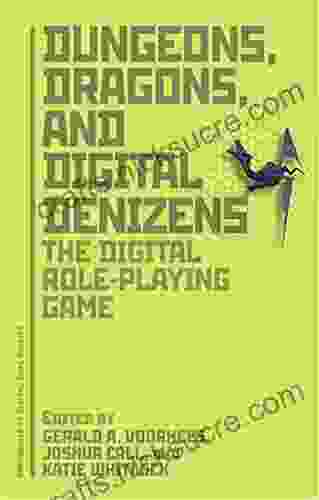
 Devin Ross
Devin RossThe Digital Role Playing Game Approaches To Digital Game...
These are just a few of the many...
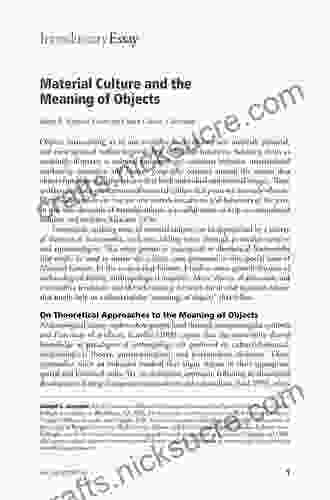
 F. Scott Fitzgerald
F. Scott FitzgeraldHistory from Things: Essays on Material Culture
History from Things:...

 Percy Bysshe Shelley
Percy Bysshe ShelleyThe Priest Lake Girl and the Cabin of Love: A True Story...
The Murder On...
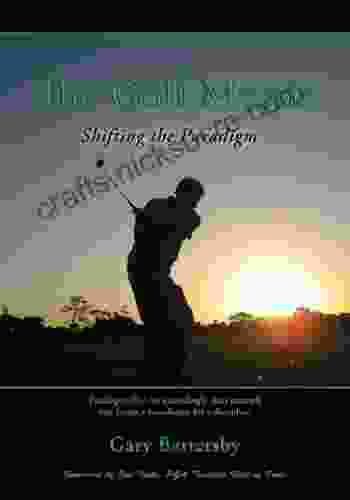
 Isaiah Powell
Isaiah PowellThe Golf Mystic: Dick Edie's Unconventional Approach to...
In the annals of golf history, the name Dick...
4.2 out of 5
| Language | : | English |
| File size | : | 12443 KB |
| Text-to-Speech | : | Enabled |
| Screen Reader | : | Supported |
| Enhanced typesetting | : | Enabled |
| Word Wise | : | Enabled |
| Print length | : | 434 pages |









